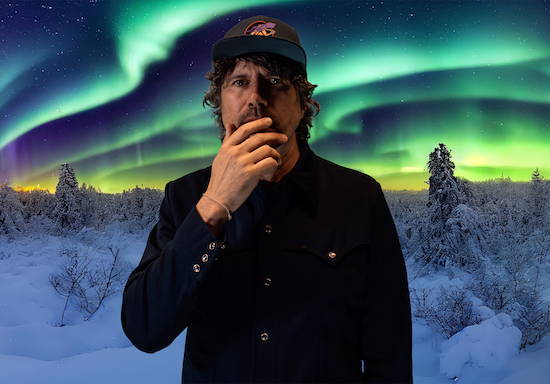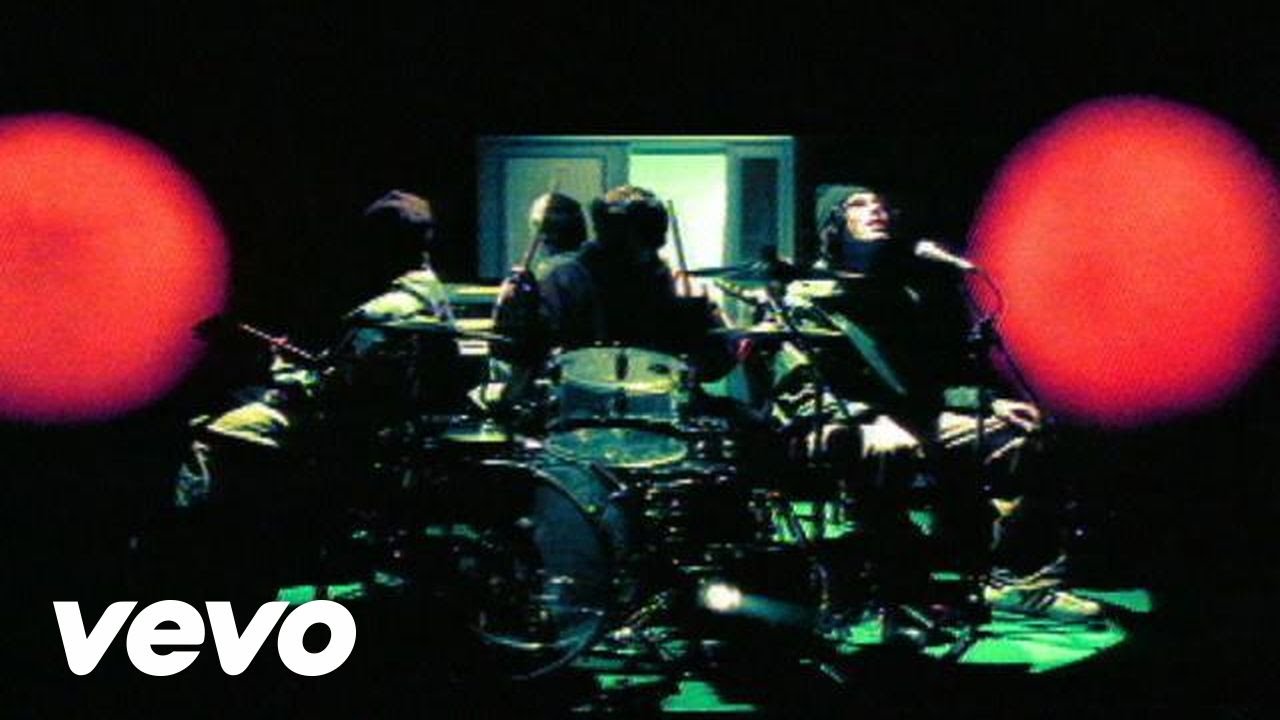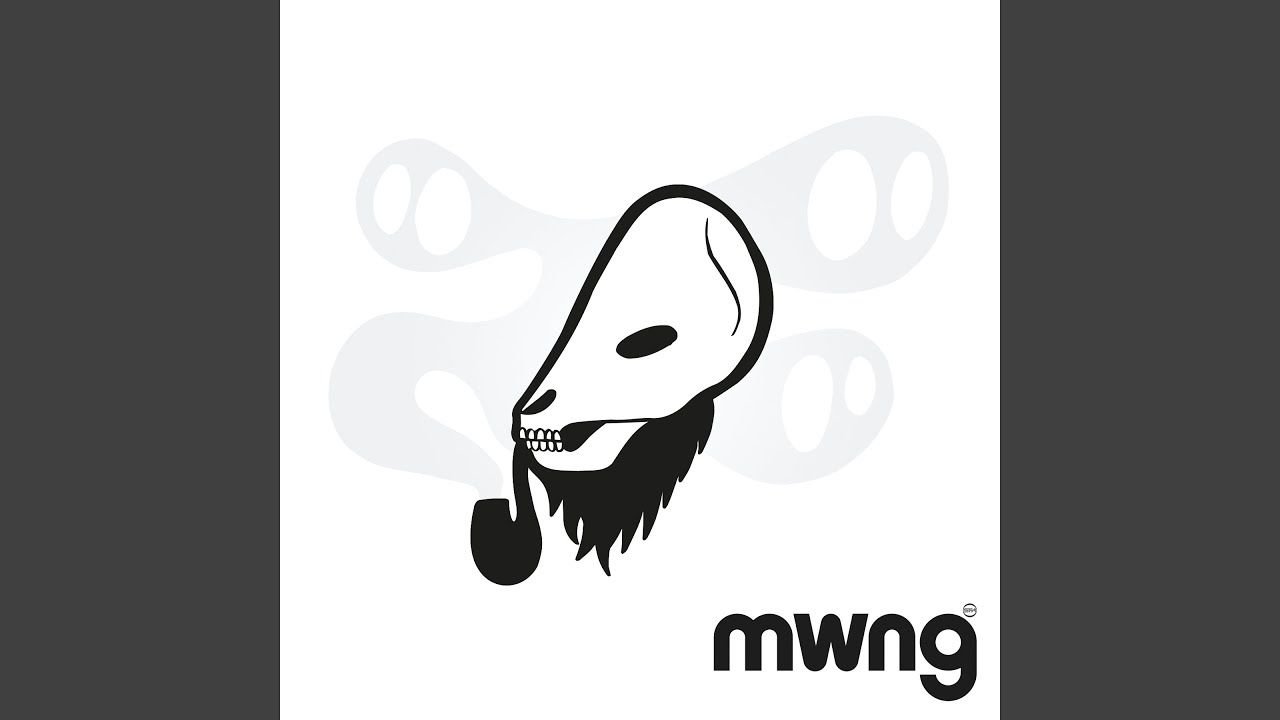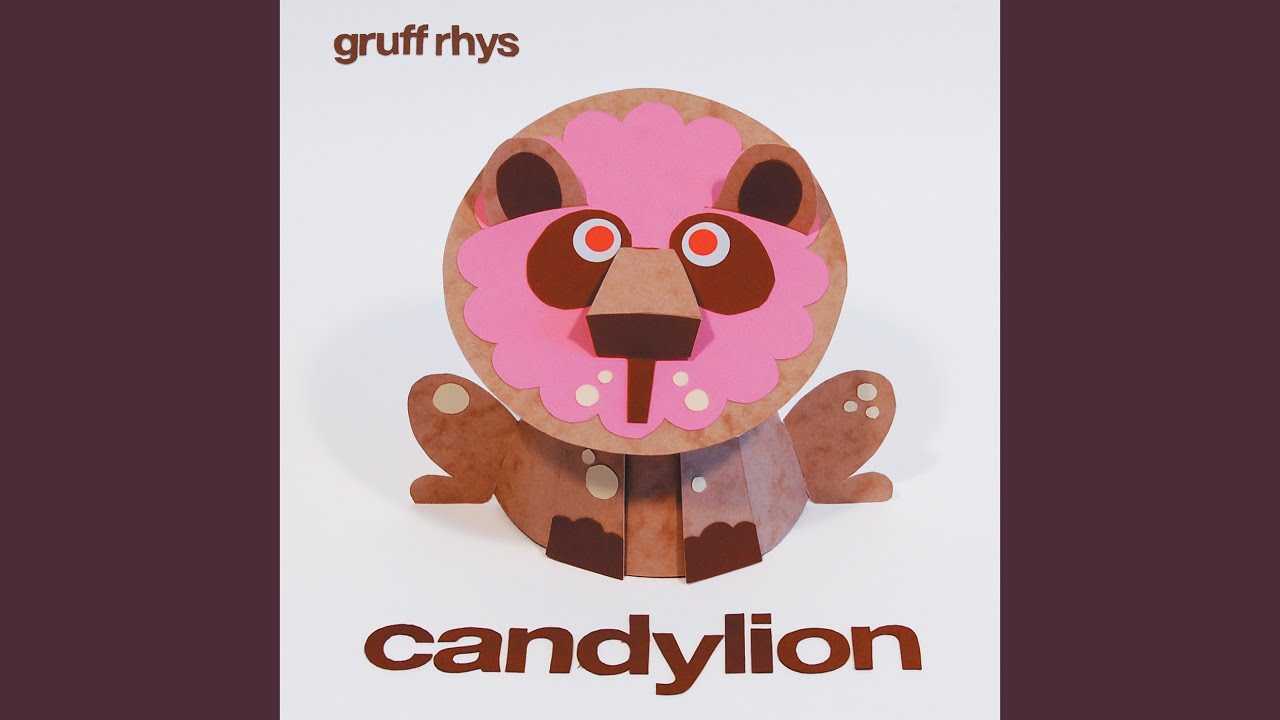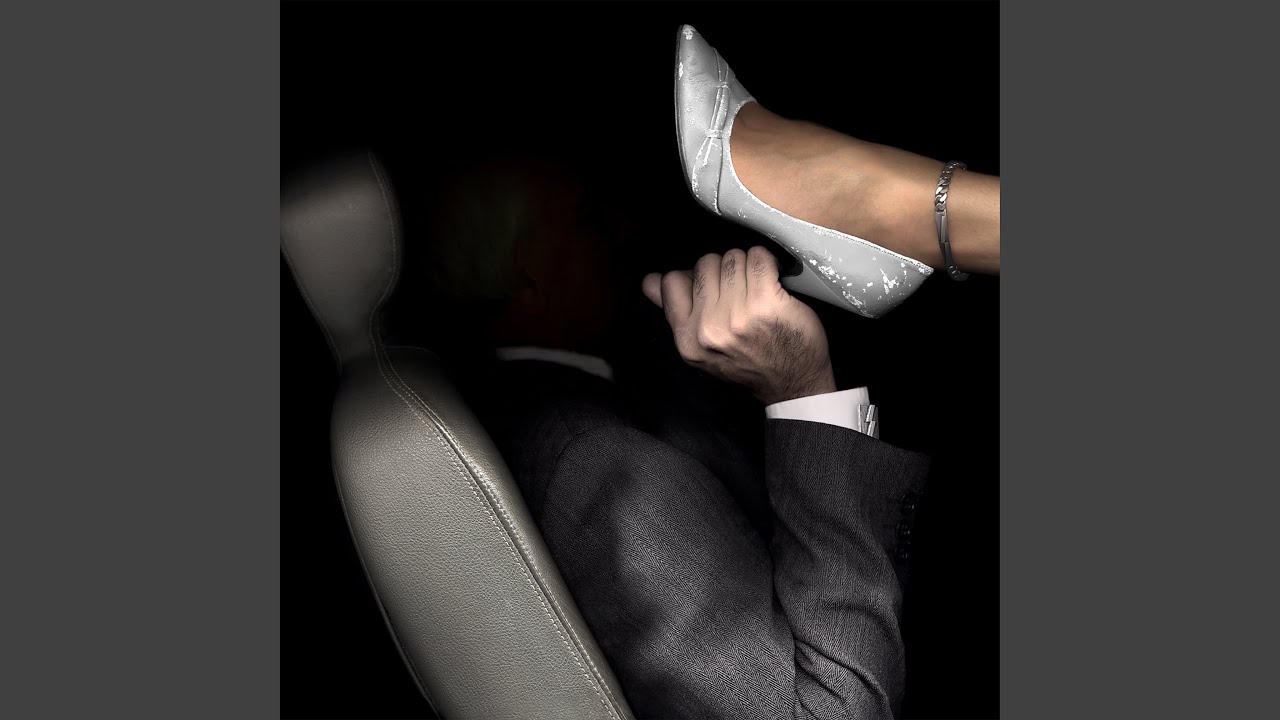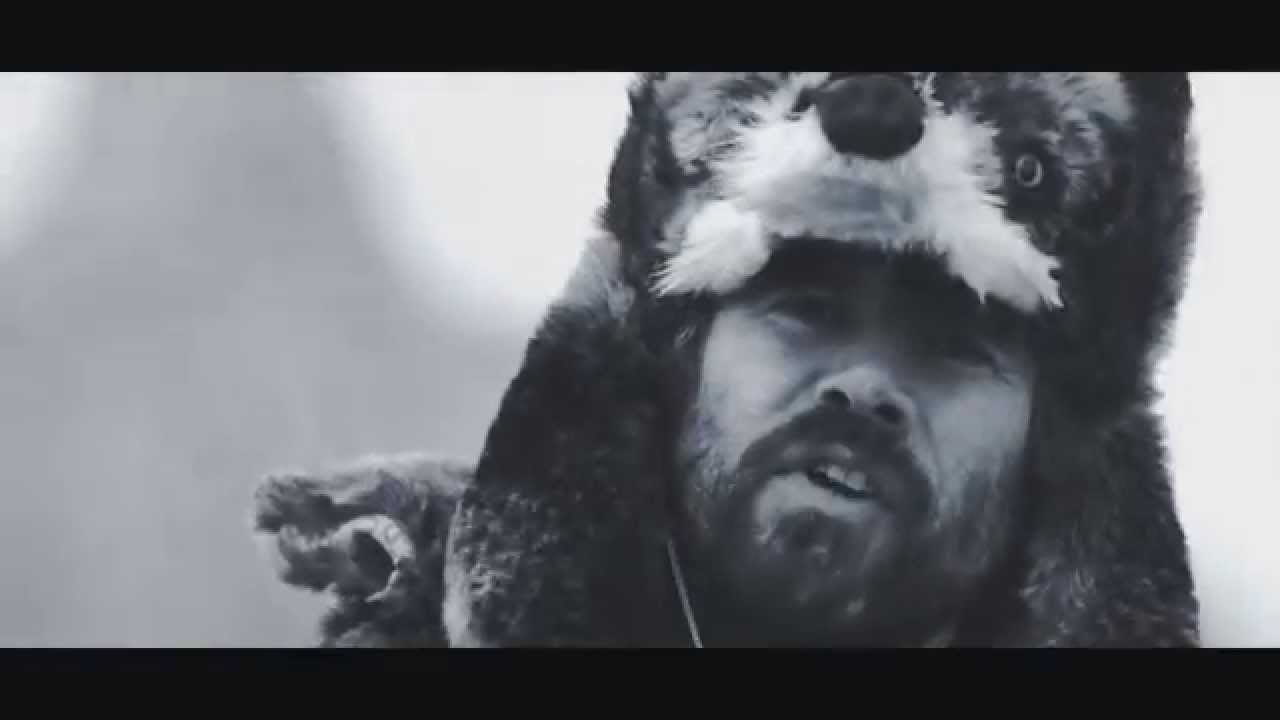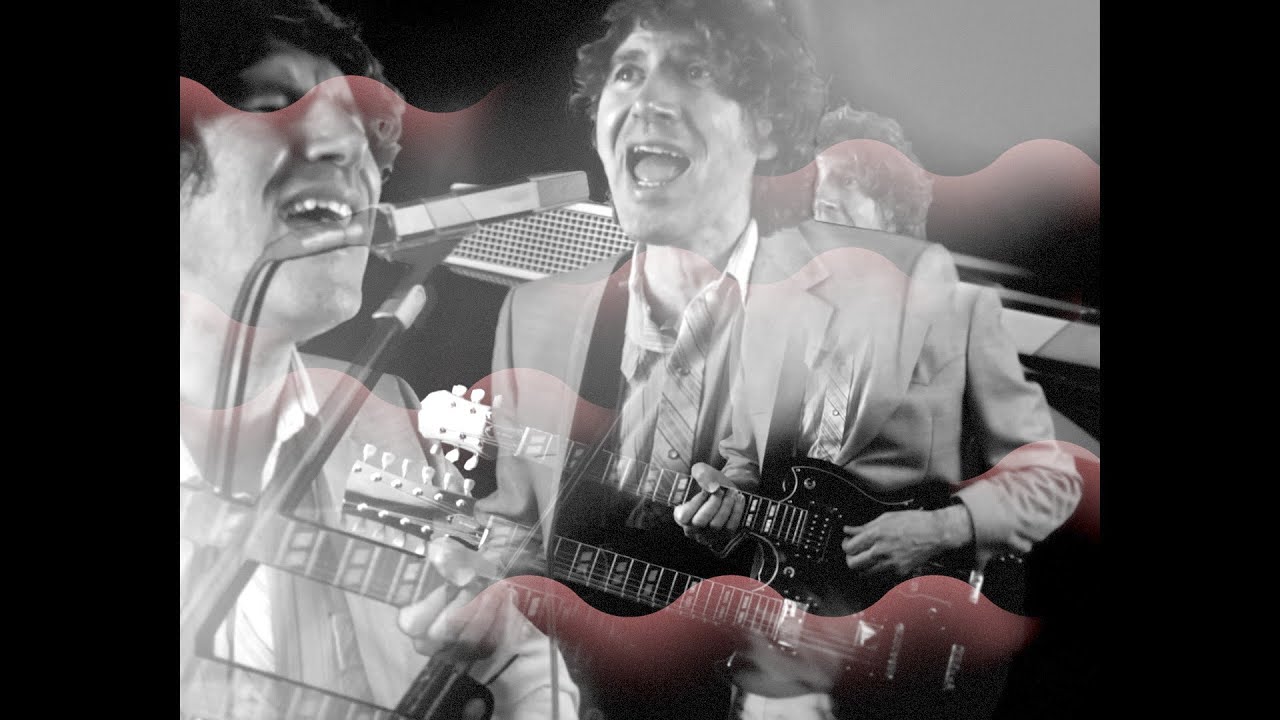"I still feel I need to do something original", says Gruff Rhys as he ponders his ongoing motivation for making music. "I’m working with quite a limited palette in a way and just looking for ways to make unique music. I still feel there are things I need to try out. I still feel in the moment and I’m still obsessed with music.”
He’s not wrong. With his eighth solo album, Sadness Sets Me Free, about to released, the jaw drops when the realisation kicks in that it’s also his 25th album overall. Looking at the world around us, this latest collection is more melancholy and tinged with anger than most of his releases, but it remains shot through with Rhys’ customary mix of compassion and wit (see ‘They Sold My Home To Build A Skyscraper’ and ‘Cover Up The Cover Up’ for starters).
With a career that stretches back to the late 1980s, this wonderfully idiosyncratic talent is perhaps best known as the singer-guitarist of the much loved Super Furry Animals. Emerging during the height of Britpop, the Welsh band managed to stand apart from their contemporaries thanks to a psychedelic approach that blended pop, prog, techno, punk and so much more with a righteous ire that was always tempered by a delicious sense of humour. His career outside of the band has seen him collaborate with a series of artists including Simian Mobile Disco, Mogwai and Gorillaz and that’s before we pause to consider his excursions into documentary filmmaking and writing books.
But for Gruff Rhys, all roads always lead back to music.
“In terms of songwriting, I think this is my favorite medium of communication,” he says. “It’s quite a slow medium. And it can take me time to figure out everything I want to say. Some people can do that on social media five times a day or some people are naturally funny in conversation. They don’t need to write a song. But I feel writing songs is my contribution to the conversation.”
And that’s certainly a conversation that goes long into the night. With a back catalogue as deep and wide and varied as his, distilling Gruff Rhys’ output to just ten songs is no easy task. But, as displayed here, it has been a fun one to deal with.
Ffa Coffi Pawb – ‘Breichiau Hir’ from Clymhalio (1991)
Gruff Rhys: It’s pronounced "fuck coffee pawb". That’s like a play with words in English and Welsh. In Welsh it means ‘everybody’s coffee beans’. But phonetically, because there are no taboo words in the Welsh language, we have to use English swear words. So we use ‘fuck off’ and ‘bloody hell’ and things like that, so to say ‘fuck off everybody’ it’s Ffa Coffi Pawb. And you can you can spell it out in a Welsh way innocently, but when we were starting out we got banned from TV and radio things. I don’t think I could have sung in another language. You know, I didn’t sing in English until I was 25. I didn’t have a grasp how to do it until that point. It took me a while to figure out how to sing in English or what accent my singing voice would be in English. So [Super Furry Animals’ debut album] Fuzzy Logic, the first album I did in English, sounds like a weird collection of thrown out different singing accents.
Super Furry Animals – ‘The Man Don’t Give A Fuck’ 7” (1996)
GR: Daf [Ieuan], the drummer, came across the sample of Steely Dan’s ‘Show Biz Kids’ and it’s not an obvious sample at all. We originally recorded this as the B-side to ‘If You Don’t Want Me To Destroy You.’ Initially Steely Dan seemed to give us the all clear to use the sample. Walter Becker agreed and then Donald Fagen agreed, but then we got a letter from Donald Fagen’s lawyer saying that he didn’t think that Donald Fagen was in the right state of mind to be making decisions about his music. So we weren’t allowed to release it. We then had to cut a song called ‘Guacamole’ in a hurry for the B-side. And then we got a letter from Donald Fagen’s lawyer saying that he was now convinced that he was in the right state of mind. [Keyboard player] Cian Ciaron started developing it into an extended techno track and that happened gradually and it got longer. And then we started bringing out good friends and putting them in these outfits like wrestlers and yetis. We’d get them to go and stand on stage during the techno bit. It became more and more extreme as we went along. When we killed the yetis off at the Hammersmith Apollo in 2004. I think we were trying referencing David Bowie’s Ziggy Stardust farewell gig. We thought, this is the time if we’re gonna kill them off; this is the night, this is the venue.
Super Furry Animals – ‘Ice Hockey Hair’ from Ice Hockey Hair EP (1998)
GR: When you’re in a band, you create a musical culture and also a culture of humour and whatever happens in friendship groups. We were having a really good time and didn’t take ourselves particularly seriously. We were travelling a lot and we were meeting all these characters, and this song was inspired by a third-division Swedish footballer who came to see us after the show in Gothenburg. He started talking about ice hockey hair, thinking we knew what he was talking about. But it’s the Swedish phrase for [80s hairdo] ‘the mullet’. We were in tears laughing with him because he was a funny guy. We were referencing that conversation for months and Guto [Pryce, bass] and Bunf [Huw Bunford, guitar] would reenact the conversation. And so, I think that conversations are the biggest inspiration point for songs. You know, just the wild things people say in conversation and ‘Ice Hockey Hair’ was a document of that conversation.
Super Furry Animals – ‘Ymaelodi Â’r Ymylon’ from Mwng (2000)
GR: As for commenting about the whole of Mwng being sung in Welsh, it’s weird that I should have begun singing in English because Welsh is my first language. This title is good alliteration for singing and it means ‘Joining The Periphery’. We were just using our first language, so it was very natural for us. I think it was a response, lyrically, to people asking us, ‘What’s it like coming from the periphery of things?’ You know, as if we were from somewhere else, but everyone’s at the center of their own universe. Musically, there are lots of key changes going on and there’s some spaghetti western influence and there’s lots of different influences going on in the song. It was recorded in Ofn Studios in Anglesey where we’d recorded a lot of that early music and all the Ffa Coffi Pawb albums and you can hear that in the drum sounds. It sounds really evocative of that era for me – just the sound of [producer] Gorwel Owen. He built this amazing studio. He built it acoustically, so there are no 90-degree angles in it. We were always confused how he got such a good sounding room, but it was by design. It’s got his harmonium on this song. Mwng got commended in Parliament [for being the first Welsh language album to crack the Top 20 of the UK album charts]. It’s a source of suspicion if you’re commended by the establishment; it should be maybe more of the warning!
Super Furry Animals – ‘Receptacle For The Respectable’ from Rings Around The World (2001)
GR: We got invited to the NME Awards in 1999 and Paul McCartney was there. I think we were over-confident with booze and Cian approached Paul McCartney to ask him if he if he could remix The Beatles and to our shock he brought him back to the table. And then he sent us boxes of Beatles master tapes and things to remix. We had this weird relationship with him at that time, so we asked him if he’d chew carrots for our album to return the favour for remixing the Beatles. And so, for ‘Receptacle For The Respectable’, we gave him instructions to chew celery and carrots and revive what he’d done on the Beach Boys track, ‘Vegetables’. This was a homage to that as well. But we were in a ridiculous city situation where we could get a member of The Beatles and a member of The Velvet Underground on our album. We thought that was hilarious. John Cale had come to Cardiff to do a documentary film called Beautiful Mistake where he jammed with local bands. We played him ‘Presidential Suite’ and thought he could maybe arrange strings or something but his whole thing was to empower us to do things. So he was like, ‘How would you usually arrange strings yourself?’ I was saying that I get together with the string arranger and whistle them the arrangement and then they write it down. And he’s like, ‘That’s what I do as well. Just do that.’ In the end, he ended up playing piano on ‘Presidential Suite’.
Gruff Rhys – ‘Skylon!’ from Candylion (2007)
GR: I was just writing a song as normal. And, you know, I wrote the lyrics down and then when we recorded it in the studio, I didn’t realise that it goes on for so long. I thought it was like a five-minute song, maybe slightly longer than usual. I didn’t think much of it until the bass player had to take break because after a while he was developing blisters. It was 15 minutes long! But it wasn’t an intentionally long song; it’s just how un-concise I am as a writer. We re-enacted the [lyrics to the] song when we played it live. I did gigs with a singer called Lisa Jên, who sings in band called 9Bach and it’s amazing to engage with her because she’s an actor. She was acting out the whole song. I found some old airline seats in an airstrip in Gloucestershire. Some people had chopped up an old plane and were selling off the seats so drove up there get them. We did the whole Candylion tour with airplane seats and a giant TV set, which was like flat pack furniture. We had to build it with an electronic screwdriver. It was like an Ikea session every night what with putting up the TV and then breaking it down afterwards. It was a big undertaking.
Neon Neon – ‘I Told Her On Alderaan’ from Stainless Style (2008)
GR: [Record producer and rapper] Boom Bip had opened for Super Furry Animals when we toured Phantom Power in America. I’d done some singing for him and then he suggested making a whole record. We ended up deciding that it should be a biography of [80s controversial car manufacturer] John DeLorean and that influenced the whole sound of the record. DeLorean is the only person I’ve heard of to have had chin implants. But it all happened organically and we got obsessed with the same things. What I love about working with Boom Bip is that he’s militant. When it came to production, he banned organic instruments so there was a concept there. I think up to that point with records, we had to throw everything including the kitchen sink to make our point and so we would mic up the sink in the kitchen. Prior to the recording, he was thinking about the whole world of the album, and I’ve never worked with a producer like that before. He works really conceptually but in a low-key way; you know, he’s not like doing your head things with it – totally careful and considerate. This record was a real adventure.
Danger Mouse & Sparklehorse (feat. Gruff Rhys) – ‘Just War’ from Dark Soul Of The Night (2010)
GR: I met Brian Burton [Danger Mouse] just after Super Furry Animals finished a tour in Los Angeles. We went to his house and we were there by coincidence on Grey Tuesday when he released The Grey Abum. So I’ve known him for years and he remixed the Super Furry Animals song ‘Lazer Beam’. I used to hang out with him whenever he’d come to Cardiff. When he was putting the project together with Mark Linkous, he sent me a song, and it was just the music and Mark whistling some ideas. There were no lyrics or anything. [Sound engineer] Kris Jenkins had a studio in Cardiff and recorded my singing and sent it back. And there was some problem with the headphones and I couldn’t hear exactly what I was singing. I don’t know what Danger Mouse did to it – I don’t know if he speeded up the track up or something – but I was gobsmacked by what he sent back. I think it’s one of my favorite singing takes ever. And I was really happy with the lyrics, which they left me to get on with. They didn’t have a tour. They just went out for a meal to celebrate the record being finished. And then [film director] David Lynch did the cover. So I got invited to this meal in LA with Mark Linkous and David Lynch, but I was playing with Super Furry Animals in Cheltenham that day. It would be tough to go to LA just for a meal; it would be immoral. David Lynch took Werner Herzog as his guest.
Gruff Rhys – ‘Lost Tribes’ from American Interior (2014)
GR: This is a based on the story of John Evans and the purpose of his journey was to look for a piece of fake news. Basically, there was a myth surrounding a Welsh prince called Madoc and the claim that he’d sailed from Wales in 1170 and discovered America before the Spanish. It was said that his descendants were the Mountain Tribe in North Dakota. John Evans spent the 1790s trying to verify this and he travelled to areas in America where no Europeans had been before to disavow this complete fabrication that was made to make colonial claim on North America by the British. He ended up in New Orleans and died at the age 29. He lies in an anonymous grave in the graveyard where they shot the acid scene in Easy Rider. He’d travelled by river, so we based a US tour on his route. We travelled down the Ohio River and up the Mississippi river. So we played it in places I’ve never been before like the Omaha Reservation, and the Three Tribes Reservation, the home of the Mandan, Hidatsa and Akira tribes in North Dakota. I also played in Elvis’ karate instructor’s studio in Memphis.
Gruff Rhys – ‘Loan Your Loneliness’ from Seeking New Gods (2021)
GR: We did an American tour and started playing a lot with [former Flaming Lips drummer] Kliph Scurlock who played on American Interior. And then we did an American tour in 2018. It was me, Kliph, Osian Gwynedd on the piano and Stephen Black from Sweet Baboo on bass and we played that track live until it sounded good. Then, at the end of the tour, I booked the studio for three days in the desert in California and we turned up and the studio didn’t work so in the end, we had two days to record the album. The engineer was just doing bongs and we didn’t think he knew what he was doing. He was just pointing mics randomly and we were on a real downer; everything sounded terrible in the room and then we played ‘Loan Your Loneliness’. He then played it back and it sounded incredible. He added some synths and some backing vocals, but it’s all based around Kliph’s shuffle. He is such an amazing drummer for that record. Instead of him trying to adapt to the way I play, we decided to try and adapt to his natural volume. The beauty of that record is all about what Kliph, Osian and Stephen created as rhythm. As a boogie, it’s incredible.
Sadness Sets Me Free is released via Rough Trade on 26th January

